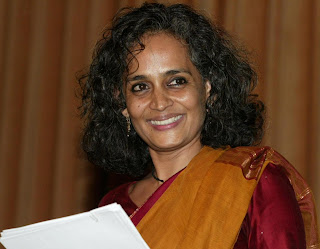Being a housewife in contemporary India is a tedious task and comes with a new set of pressures, says writer-publisher Namita Gokhale who also believes that Indian feminists balance and suppress a lot.
"There is the pressure of looking young, slim and beautiful. As one gets older, one has to look younger. It is very hard work to be a Delhi society lady; a minute by minute struggle!" Gokhale, who has penned 10 books, told reporters in an interview.
The changing society, the Indian political spouse, society, women and oddballs are the spotlight of the 56-year-old writer`s new novel, `Priya: An Incredible Indyaa`, which is a sequel to her first book, `Paro: Dreams of Passion`.
"The concept of `Bharatiya Nari` is a can of worms, crawling with contradictions," says Gokhale, known for powerful and interpretative portrayal of women like in `Shakuntala: The Play of Memory` and `In Search of Sita`.
"Indian feminists are not like Western feminists. They balance their lives, their children`s lives and their husbands` lives. And they suppress a lot. What they do for the family cannot be undervalued. The `stree charitra (womanhood)` has always been a part of our literature. What is a woman and Indian womanhood is reflected in `Priya`, my new book, and `In Search of Sita`," Gokhale said.
"While Sita is a book about coping with the stresses of being an Indian woman, Priya has to live up to the expectations of the `Bharatiya Nari`," she said.
A satirical social comment on the high life of the capital, her new book published by Penguin India picks up the threads of some of the important characters in "Paro..." and puts them in a new context.
The novel traces the roller coaster life of Priya, a girl from India`s growing middle class, who works her way up through social and professional ranks to become the wife of an Indian minister, Suresh Kaushal. Priya copes with social vertigo, infidelity, menopause and relationships and learns some vital lessons watching her new friend Poonam chase status, sex and designer shoes.
The novel is also a journey into the layered core of the country`s changing economic scenario and the issues politicians strive to unravel in a flurry of five-star dos peopled by networkers, operators, business magnates and social hangers-on.
"Life is a tragedy for those who feel and a comedy for those who think. These are the two aspects of my work. Some of my work is sad and tragic - but this book, I have tried to keep it funny," Gokhale said.
Gokhale began scribbling Priya on a notepad on an aeroplane and "was apprehensive" about it.
"I was worried because you are not supposed to criticize. I am bad at jokes - I always forget the punch line. I was not sure whether I would be able to deal with the challenge. `Paro` was a tough act to follow. I was young then. A lot of the new book comes from a generation I didn`t really know. My own bewilderment is in fact Priya," she said.
Gokhale feels the novel is also an observation of Delhi as the capital city.
"Delhi is a city of so many constant contradictions, of cities within cities. But what is surprising is the sense of entitlement that the citizens of Delhi feel as if the world belongs to them. It is amusing and alarming because the sense of entitlement makes the people so self-absorbed. I have faithfully maintained the Delhi idiom. The Delhi idiom (life) fascinates the rest of India - the rest of India is suspicious of Delhi wallahs," Gokhale said.
The writer would not mind turning Priya into a movie if asked by Bollywood.
"I wouldn`t be possessive about the book," she said.
Other books of Gokhale, one of the co-directors of the Jaipur Literature Festival, include works like `Gods, Graves and Grandmothers`, `The Book of Shadows`, `The Book of Shiva` and `A Himalayan Love Story`.








